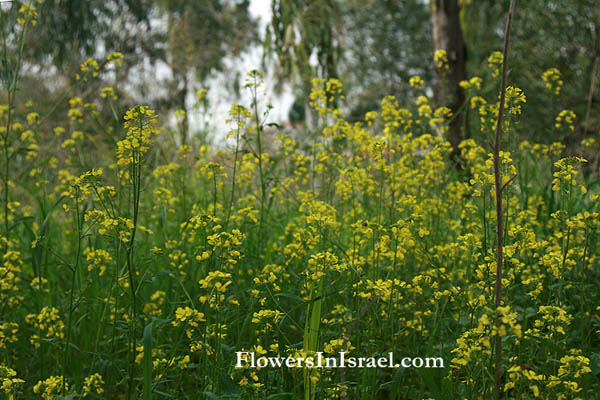|
|
| Life form: |
| Therophyte, annual |
| Stems: |
| Root is a thin taproot, sparsely branching; stem cylindrical; to 60 cm by 30 cm |
| Leaves: |
| Alternate, dissected once, dentate or serrate |
| Flowers: |
| Hermaphrodite; Yellow |
| Fruits / pods: |
| Hairy siliquae, 2-8 cm long, with 3-7 seeds |
| Flowering Period: |
| January, February, March, April, May, August, November, December |
| Habitat: |
| Nutrient-rich soils, ruderal |
| Distribution: |
| Mediterranean Woodlands and Shrublands, Semi-steppe shrublands, Deserts and extreme deserts, Montane vegetation of Mt. Hermon |
| Chorotype: |
| Euro-Siberian - Med - Irano-Turanian |
| Summer shedding: |
| Ephemeral |
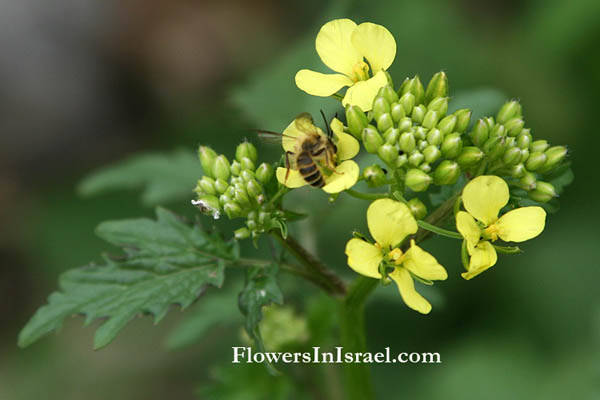
Derivation of the botanical name:
Sinapis, sinapi, Latin name for the mustard plant, from the flavor of the seeds.
alba, white, probably referring to the white appearance of the fruit pods due to their long white hair.
The Hebrew name: חרדל, hardal Post Biblical Hebrew mustard; Aramaic-Syrian: חרדלא (=mustard); Arabic: hardal is probably a loan wor
- The standard author abbreviation L. is used to indicate Carl Linnaeus (1707 – 1778), a Swedish botanist, physician, and zoologist, the father of modern taxonomy.
Mustard does not occur in the Tanach,ie Old Testament. It was in use before 2000 BCE and was thoroughly familiar in classical Greece and Rome. In ancient sources it is generally listed as a herb.
In the New Testament it is mentioned three times, on each occasion with reference to the smalness of its seed.
In the Parable of the Mustard Seed, the growth of the kingdom of heaven upon earth is compared to that of Mustard: "The kingdom of heaven is like a mustard seed, which a man took and planted in his field.
Though it is the smallest of all your seeds, yet when it grows, it is the largest of garden plants and becomes a tree,
so that the birds of the air come and perch in its branches", Matthew 13:31-32.
Pliny the Elder (23-79 CE) in book XIX.§171: Mustard - It grows entirely wild, though it is improved by being transplanted: but on the other hand when it has once been sown it is scarcely to get the place free of it, as the seed when it falls germinates at once. It is also used to make a relish, by being boiled down in saucepans till its sharp flavour ceases to be noticeable; also its leaves are boiled, like those of all other vegetables. There are three kinds of mustard plant, one of a slender shape, another with leaves like those of turnip, and the third with those of rocket. The best seed comes from Egypt. The Athenian word for mustard is napy, those of other dialects thlaspi and lizard-herb".
The earliest recipes for mustard sauce are given by Columella (4CE - ca.70CE), a Roman writer.
The word 'mustard' refer to at least three plant species (Brassica nigra, black mustard; Sinapsis alba, white mustard; Brassica juncea, brown mustard), of which the first two were certainly known in the classical Mediterranean.
Dioscorides (40-ca. 90) uses the word λαμψάνη for mustard and says that the Egyptians called it euthmoi. The Copts used two words for mustard, one taken from the Greek, the other obviously from the Assyrian designation, which also appeared in the late form of Egyptian called Demotic. The Copts used mustard to treat headaches.
Bible Resources:
- Matthew 13:31
[ The Parables of the Mustard Seed and the Yeast ] He told them another parable: “The kingdom of heaven is like a mustard seed, which a man took and planted in his field.
- Matthew 17:20
He replied, “Because you have so little faith. Truly I tell you, if you have faith as small as a mustard seed, you can say to this mountain, ‘Move from here to there,’ and it will move. Nothing will be impossible for you.”
- Mark 4:30-31
[ The Parable of the Mustard Seed ] Again he said, “What shall we say the kingdom of God is like, or what parable shall we use to describe it?
It is like a mustard seed, which is the smallest of all seeds on earth.
- Luke 13:18-19
[ The Parables of the Mustard Seed and the Yeast ] Then Jesus asked, “What is the kingdom of God like? What shall I compare it to?
It is like a mustard seed, which a man took and planted in his garden. It grew and became a tree, and the birds perched in its branches.”
- Luke 17:6
He replied, “If you have faith as small as a mustard seed, you can say to this mulberry tree, ‘Be uprooted and planted in the sea,’ and it will obey you.
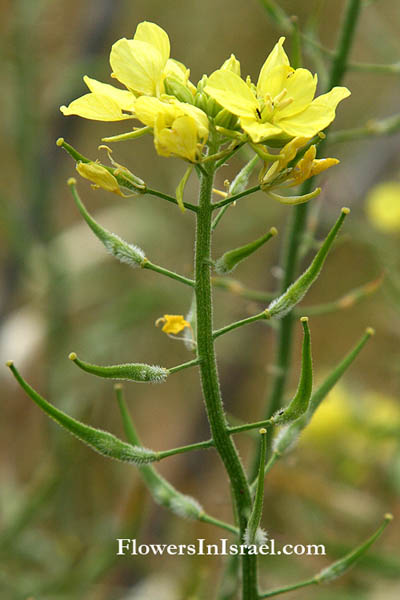
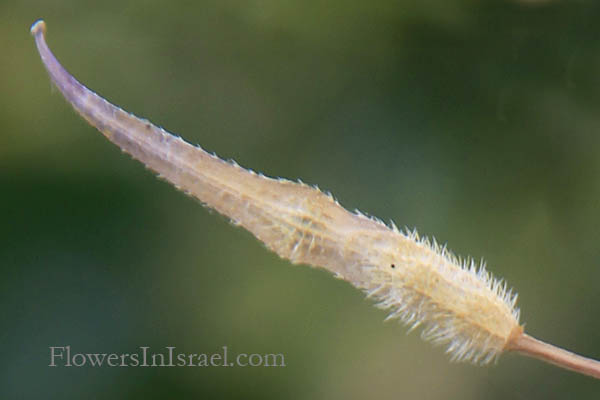
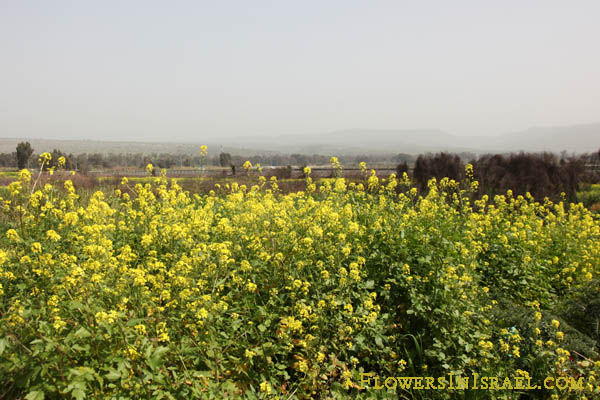
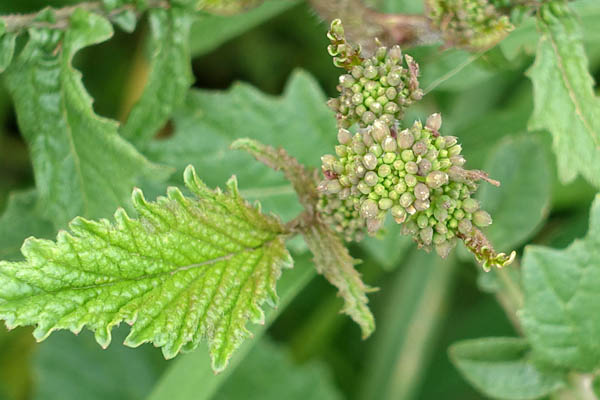
|
